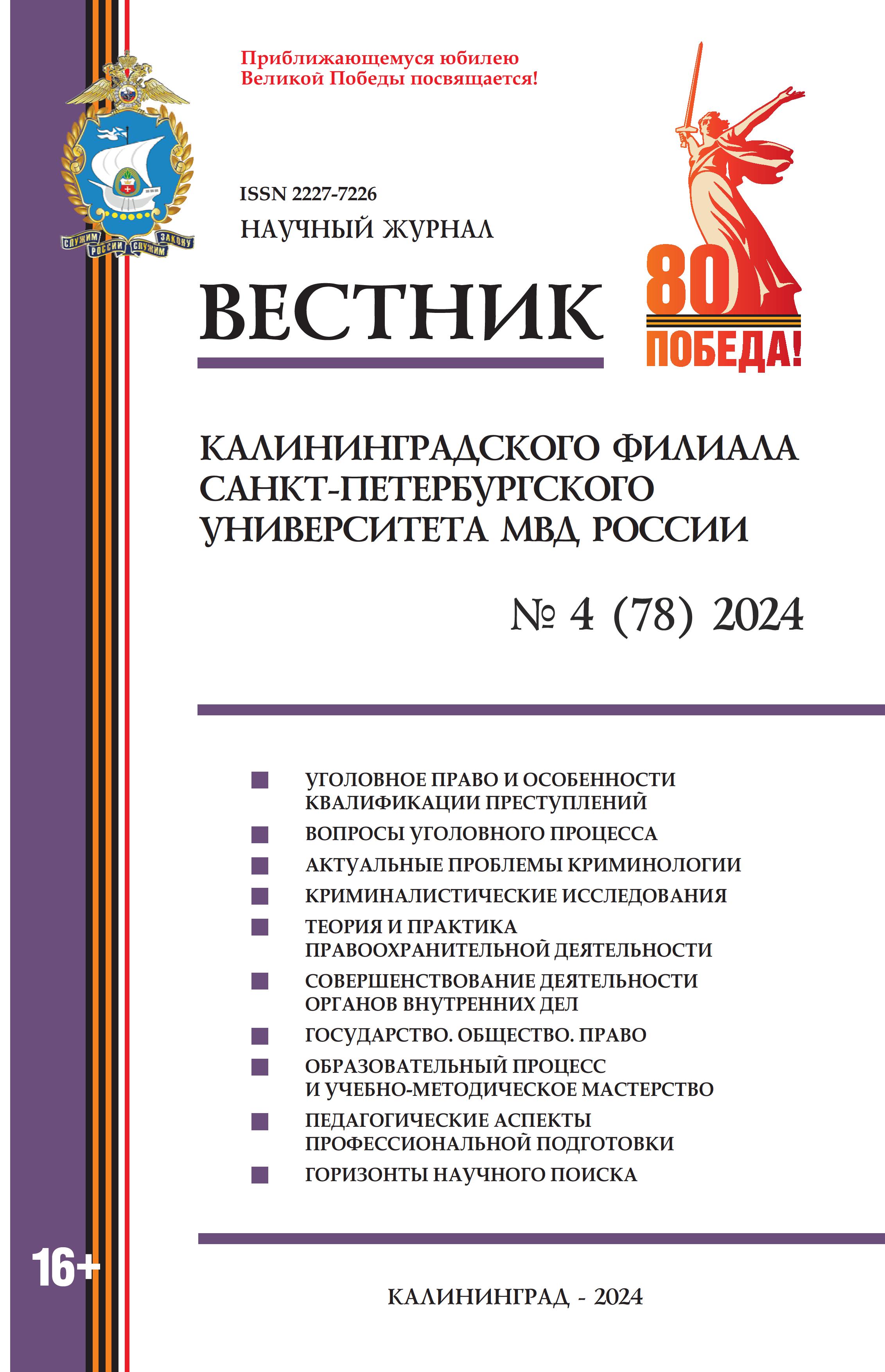from 01.01.2003 until now
g. Odincovo, Moscow, Russian Federation
Introduction. The authors of the article believe that practice is the most important element of the mechanism for developing students' interest in the profession of an investigator. Interest in the profession is the main driving force that helps strengthen motivation for learning and subsequently for working as an investigator. The formation and development of such interest is facilitated by the investigator-mentor and the teacher, who is the head of the practice. They – each for their part – direct the activities of the trainee. Methods. In conducting the study, the results of which are presented in the article, theoretical and empirical methods were used: analysis, synthesis, generalization, modeling, observation, study of pedagogical experience and documents (products of creative activity of trainees), conversations, surveys. Surveys were conducted among trainees, investigator-mentors and heads of investigative bodies. Such products of creative activity of trainees as reports on the results of their work in practice and presentations dedicated to its passage were analyzed. Systematic observation of trainees was carried out, conversations were held with them during and after practice, pedagogical experience in managing practice was studied. The study used a systematic approach, which consists in identifying patterns of relationships and interrelations in the system with the following elements: trainee – investigator-mentor – teacher - practice supervisor – head of the investigative body. Results. The most important condition for the readiness of graduates of educational institutions of the Ministry of Internal Affairs of Russia to work as an investigator is the effectiveness of the practice during training. This effectiveness is predetermined by the active-positive position of the investigator-mentor, competent organization of the practice by the heads of investigative bodies, as well as the active work of the teacher - practice supervisor. It is he who determines the possibility of effectively conducting practice in the absence of an active-positive position of the investigator-mentor.
Interest in the profession, investigator training, practice outside the educational institution, practical training, trainee activity, psychological well-being, role of the teacher, activity of the practice supervisor, active-positive investigator, head of the investigative body.







